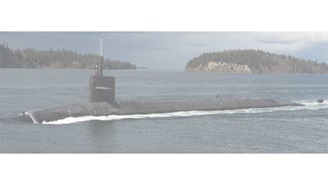Net Neutrality: Caught in a web of lobbying and regulatory uncertainty
In June 2018, the US Federal Communications Commission repealed the network neutrality rules (Open Internet Order) that required Internet Service Providers (ISPs)[1] to treat all content on the internet equally, and to not discriminate based on any characteristic, such as who owns or created the content.[2] Specifically, ISPs were not allowed to block, slow or give preferential treatment to certain content. In this blog, we explore the implications of this repeal to users and investors, particularly in light of the recently announced mergers between distributors and content creators in the US.
Industry expert Jon Hale shares his views on attempts to discredit sustainable investing
In a new Medium article highly worth the read, Jon Hale, Global Head, Sustainable Investing Research at Morningstar, writes about recent misleading attacks on the credibility of ESG assessments and sustainable investing. He takes aim at a critical report from The American Council for Capital Formation, a Washington D.C. policy group financed by the National Association of Manufacturers, the fossil fuels industry and various other corporate lobbying organizations.
Antimicrobial Resistance: A life-threatening issue
Since their introduction, antibiotics have saved millions of lives by reducing complications and mortality associated with infectious diseases. However, widespread use of antimicrobial drugs is also closely associated with an increase of antimicrobial resistance (AMR). As the makers of these drugs, pharmaceutical companies can play a big role in battling AMR. Without their efforts, the prospects for successfully combating the issue are dim.
Migrant Detention at US Borders: What investors need to know
Over a five-week period in May and June 2018, 2,342 immigrant children were forcibly separated from their families at detention centers along US borders[1]. This was the result of the Trump administration’s “zero tolerance” policy of referring for criminal prosecution people who cross the border illegally, including asylum seekers. This policy and the resulting family separation have been criticized as unconscionable and damaging by the United Nations high commissioner for human rights, as well as by the American Association of Pediatrics.
Celebrating a diversity of approaches to sustainable investing
I recently traveled from the US to Europe to learn about the major market differences in sustainable investing. For context, investors long rooted in sustainable investing practices have viewed the general US market as lagging compared to Europe. As it pertains to values-based investing, I agree. However, the US has embraced ESG integration in a very sophisticated and pioneering way as it relates to risk mitigation.
Revisiting ESG in China: Has company performance improved?
China’s growing economic power, continuous reforms and liberalizations have made it increasingly important to global capital markets. In 2017, MSCI announced it would add around 230 “A-Shares” to its Emerging Markets and All Country World Index indices in June and September 2018. Due to the large amount of passive-strategy funds worldwide, it is estimated that a total of USD 20 billion, and as much as USD 300 billion at full inclusion, will flow into A-Shares market.
GDPR and the Right to Privacy
On May 25, 2018, General Data Protection Regulation (GDPR) will enter into force, repealing the 1995 non-legally binding European Union (EU) Data Protection Directive. GDPR enhances European citizens’ right to privacy by enshrining the “right to be forgotten,” establishing concepts like “privacy by design” and by setting aggressive timelines for businesses to report data breaches.
Pipeline Power Play: Kinder Morgan puts the Trans Mountain Expansion on Hold
On April 8th, Kinder Morgan (NYSE: KMI) and its Canadian subsidiary announced a suspension of work on its Trans Mountain Expansion pipeline (TME) until May 31 as resistance to the project comes to a head. The project, which would carry to market the glut of oil sands production in Alberta, is one of the few proposed pipeline megaprojects in Canada that remains underway. Despite this setback, the delay may not have a long-term negative impact on shareholder value. In our view, the suspension is not a capitulation but an ultimatum to push the Canadian government and the province of British Columbia (BC) to provide regulatory certainty for the project.
Commentary on New Department of Labor Guidance
On April 24th, the US Department of Labor (DOL) released a Field Assistance Bulletin (FAB), seeking to clarify how environmental, social and corporate governance (ESG) factors should be considered under the Employee Retirement Income Security Act (ERISA).
Battle over Western Sahara is moving into court rooms
Polisario Front, recognised by the United Nations as the legitimate representative of the people of Western Sahara (WS), announced that it will initiate new legal proceedings before EU Courts. The announcement came after the EU Council authorized the EU Commission to negotiate with Morocco for a new fisheries protocol. Interestingly, the EU council said that that the fishing agreement negotiations will also cover WS, a former Spanish colony which was annexed by Morocco in 1975.
Facebook’s New Era: The Regulatory Implications of the Cambridge Analytica Incident
The collection and monetization of users’ data is a core part of Facebook’s strategy. However, Cambridge Analytica’s (CA) unauthorized collection and exploitation of this data exposes both the breadth and complexity of the information it has on individuals as well as the insidious nature of the methods used to collect it.
Managing Portfolio Exposure to Firearms: What investor can do
The February 14 mass shooting at Marjory Stoneman Douglas High School in Parkland, Florida and the subsequent student protests and activism have reignited America’s debate over gun safety. Interestingly, the conversation has shifted to public pension investment in the firearms industry. As passive investors take a closer look at their holdings, some are asking what steps they can take to reduce their exposure firearms manufacturers and retailers.
Nuclear Weapons: The Next “No-Go” Area for Investors?
The start of 2018 brought two interesting developments to the responsible investing community. On January 11th, the Dutch 405 billion euro pension fund ABP announced that it will take steps to exclude nuclear weapons and tobacco companies from its investments. Within a week, Norges Bank declared the addition of five companies to the 870 billion euro Government Pension Fund Global exclusion list due to involvement with nuclear weapons.
Blockchain: A new ESG tool?
Significant developments in the use of blockchain have occurred over the past year with applications across finance, supply chain, and healthcare, to name a few. As institutions have developed and deployed market solutions, the technology has gained momentum (as we noted in our 10 for 2017 report). However, until its use becomes widespread, blockchain will remain conceptual for most people, much akin to describing the internet before it became ubiquitous. So, what is blockchain exactly and can it be used to advance sustainability management?
Meltdown and Spectre: Exposing the Achilles’ Heel of Chips
In January 2018, technology website The Register reported on security flaws in microchips that make a range of devices, from PC computers to servers and smartphones, more susceptible to hacking and could enable unrestricted access to sensitive information, such as passwords. What will this mean for chip manufacturers and how will it affect the broader technology value chain?


















